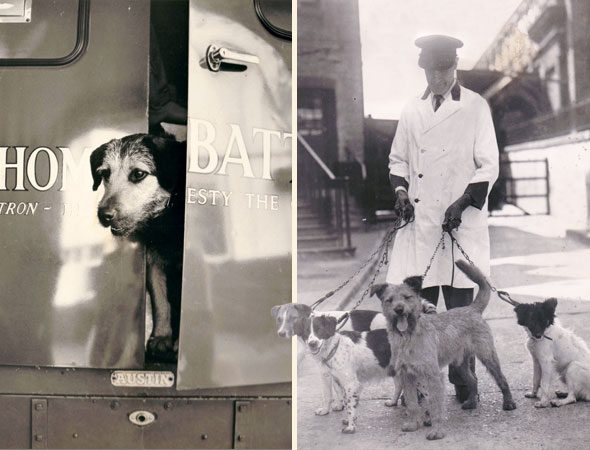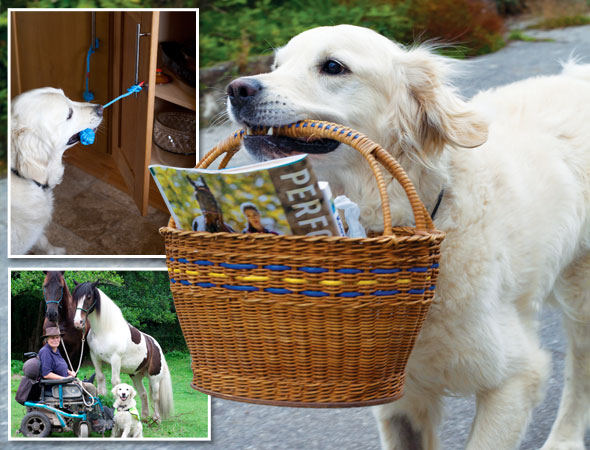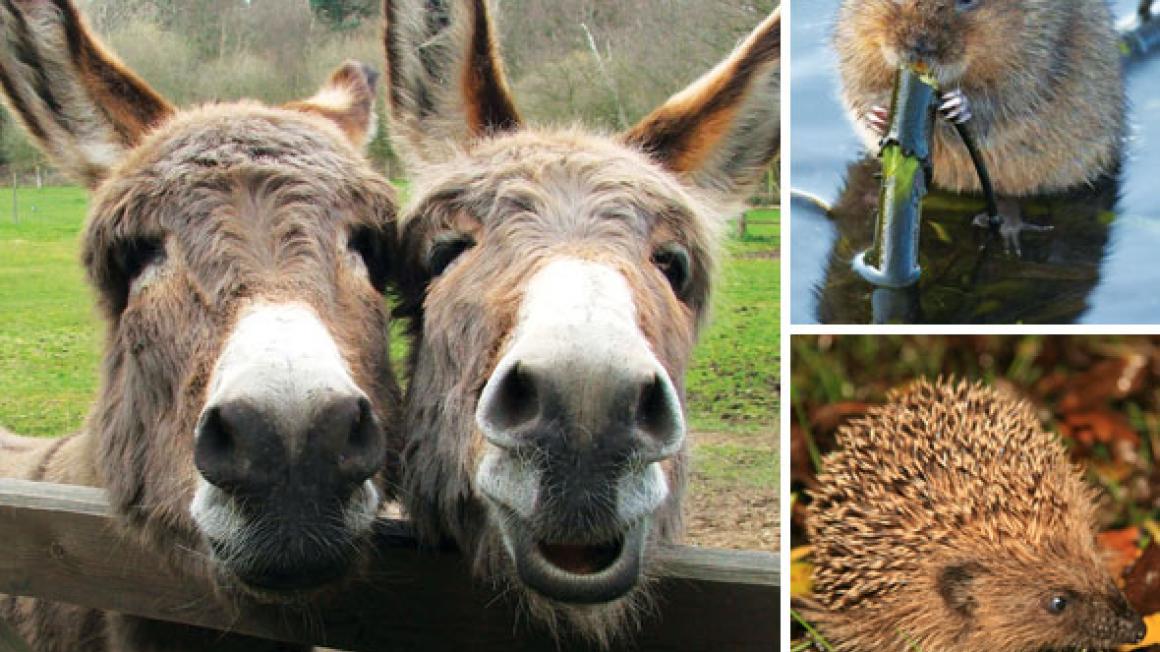SAVE OUR ANIMALS
For as long as I can remember, we have had a drinks mat featuring the face of Pasco the Donkey. My mother sponsored Pasco many years ago, as part of her enduring commitment to The Donkey Sanctuary. I was pleased and surprised, therefore, to discover recently that Pasco is alive and well, albeit rather elderly, and still enjoying human company. In the 40 years since Dr Elisabeth Svendsen established the charity, 15,500 donkeys have passed through the sanctuary’s gates in the UK and Ireland. Communications manager Dawn Vincent is Svendsen’s granddaughter and is concerned to keep her grandmother’s legacy alive. ‘Our nationwide team of welfare officers can advise people on the phone or visit if they are anxious about donkeys,’ she tells me. And the charity is not just concerned with the mistreatment of donkeys, but also helps humans. There are now six centres in Britain where donkeys play their part in therapies for children and adults with special behavioural and physical needs.

In the late 1970s, The Donkey Sanctuary started working abroad in Ethiopia, and currently has core projects there and in Kenya, Egypt, India and Mexico. Again, the outreach is humanitarian as well as animal-driven. Donkeys are beasts of burden and, if well cared for, are more efficient in helping poor families by carrying water, or transporting loads of bricks. ‘I have seen for myself the value of our work in Ethiopia,’ says Vincent. ‘Helping a donkey can put a family on its feet.’
Supporting wildlife also assists in preserving our natural environment. That remains the mission of the Wildfowl & Wetlands Trust, founded in 1946 by Sir Peter Scott and now working globally. With more than 200,000 members, it aims to raise awareness of the value of wetlands to life on Earth, to identify and counter threats to their survival, and to inspire people to explore and help conserve them. Individual species have their supporters, too. In a recent magazine poll, the hedgehog was voted Britain’s national species. The British Hedgehog Preservation Society wants to protect this endangered animal, by giving advice to the public on hedgehog care and funding research into their behaviour. It can also advise on creating a wildlife garden to help hedgehogs, birds, bats, frogs and toads survive the winter and maintain an eco-balance. The Bat Conservation Trust, founded in 1990, does similar work on behalf of bats, while, after 124 years, the Royal Society for the Protection of Birds continues to speak out for birds and wildlife. It also tackles environmental issues raised by climate change, agricultural intensification and urban expansion.
Dr Hadwen Trust for Humane Research, registered in 1970, champions medical research that doesn’t use animals, and is funding some 150 research projects into Alzheimer’s, various cancers and kidney disease. A panel of expert scientists validates all potential projects, according to the group head of operations, Dr Kay Miller. ‘Even if a project is first class, we would not fund it unless it aimed at replacing animals,’ she says. ‘We want to raise awareness of many alternative and preferable techniques, which are more relevant and cheaper.’
Animals help people with disabilities. Guide Dogs seeks to give people who are blind freedoms enjoyed by the sighted. Beguiled by pictures on the website of George the Labrador and retrievers Truffle and Honey, you may want to sponsor a puppy from £1 a week. Regular updates on their puppy’s progress give huge pleasure to donors. ‘I proudly show Misty’s photo to everyone and talk about her to all my friends,’ writes one sponsor.

Kick-started by vet Bruce Fogle and Lady Wright of the then Royal National Institute for the Deaf, Hearing Dogs for Deaf People was launched at Crufts in 1982. Socialised in families from eight weeks to about a year old, puppies then return to one of two training centres, where they are prepared by experienced staff to alert people to sounds and danger signals at home, in the street, and at work. More than 1,750 dogs have now been placed, with transforming effects. When June Bray’s husband, Ian, was diagnosed with cancer, training a new hearing dog, Rosie, gave them a positive focus. Her first hearing dog, Pippa, had retired but remained with the family, and the two dogs brought June comfort and companionship after Ian’s death in December 2012. ‘Since having a hearing dog, my life has changed so much,’ says June. ‘Both Pippa and Rosie have made such a difference to my self-confidence, and I don’t worry about going out anymore.’
Disabled by a degenerative spine condition, Ann Greenwood wanted to maintain her independence and continue horse riding. In 1988, she contacted Dogs for the Disabled, and Shep, a working collie, was trained up as her assistance dog. Within a year, he could respond to more than 150 different commands, including opening the paddock gates, picking up tack and fetching feed bins. Since Shep’s retirement in 1997, four further assistance dogs have helped Ann with her two horses and two donkeys. ‘My life is set up to work with a dog, from the moment they turn on the light at 6.45 every morning,’ says Ann. ‘Assistance dogs have enabled me to live the life I wanted.’
Address book
- Bat Conservation Trust 0845-130 0228, www.bats.org.uk
- Battersea Dogs & Cats Home 0843-509 4444, www.battersea.org.uk
- British Hedgehog Preservation Society 01584-890801, www.britishhedgehogs.org.uk
- Dogs for the Disabled 01295- 252600, www.dogsforthedisabled.org
- The Donkey Sanctuary 01395-578222, www.thedonkeysanctuary.org.uk
- Dr Hadwen Trust for Humane Research 01462-436819, www.drhadwentrust.org
- Guide Dogs 0845-372 7415, www.guidedogs.org.uk
- Hearing Dogs for Deaf People 01844-348100, www.hearingdogs.org.uk
- Mare & Foal Sanctuary 01626-355969, www.mareandfoal.org
- Royal Society for the Protection of Birds 01767-680551, www.rspb.org.uk
- Wildfowl & Wetlands Trust 01453-891900, www.wwt.org.uk


